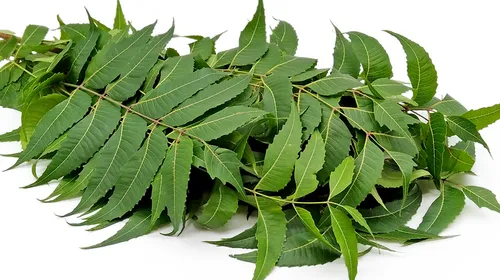Neem, also known as Azadirachta indica, is a versatile tree native to India and other parts of Southeast Asia. It has been used for thousands of years in traditional medicine, and its many benefits have made it an important part of Ayurvedic medicine. The tree is highly valued for its medicinal properties, and its leaves, seeds, bark, and oil are used in a variety of applications. In this blog, we will explore the many benefits of neem and its role in traditional medicine.

The Miracle Tree: Exploring the Medicinal Properties and Benefits of Neem
Introduction
- Brief overview of neem and its origins
Neem is an evergreen tree that grows up to 20 meters tall, with a crown of dark green leaves and small, white flowers that bloom in clusters. The tree is commonly found in tropical and subtropical regions, and it is highly adaptable to different soil types and climate conditions. Neem has been used for centuries in traditional medicine to treat a wide range of ailments, including skin diseases, fevers, infections, and digestive disorders.
One of the most important properties of neem is its antibacterial and antifungal activity. Neem contains compounds called nimbin, nimbinin, and nimbidin, which have been shown to be effective against a variety of bacteria and fungi. This makes neem an effective treatment for a range of skin conditions, including acne, eczema, and psoriasis.
Medicinal Properties of Neem
- Antibacterial and antifungal properties
- Anti-inflammatory properties
- Immune-boosting properties
- Antioxidant properties
In addition to its antibacterial and antifungal properties, neem also has anti-inflammatory properties. This makes it an effective treatment for a range of inflammatory conditions, including arthritis, gout, and other joint disorders. Neem has also been shown to be effective in reducing inflammation in the digestive tract, making it an effective treatment for conditions such as ulcerative colitis and Crohn’s disease.
Neem in Traditional Medicine
- Historical use of neem in Ayurvedic medicine
- Traditional remedies using neem for various ailments
- Modern scientific research supporting traditional uses
Another important property of neem is its ability to boost the immune system. Neem contains compounds called polysaccharides, which have been shown to stimulate the immune system and enhance the body’s ability to fight off infections. This makes neem an effective treatment for a range of viral and bacterial infections, including colds, flu, and respiratory infections.
Neem for Skin Health
- Benefits of neem for acne-prone skin
- Neem oil for eczema and psoriasis
- Neem for anti-aging and skin brightening
In conclusion, neem is a versatile and valuable resource with a wide range of applications. Its medicinal properties make it an effective treatment for a range of conditions, including skin diseases, infections, and inflammatory disorders. Its ability to boost the immune system and protect the body from damage caused by free radicals makes it an important part of a healthy diet. Its use in agriculture and animal care makes it a sustainable and environmentally friendly resource.
Neem for Digestive Health
- Neem for ulcers and digestive inflammation
- Neem for parasites and worms
- Neem for liver support and detoxification
Neem for Oral Health
- Neem for gum disease and tooth decay
- Neem oil for oil pulling and fresh breath
- Neem for overall oral hygiene
Neem is also an effective treatment for a range of dental problems. Its antibacterial properties make it effective in fighting the bacteria that cause gum disease and tooth decay. Neem has also been shown to be effective in reducing inflammation in the gums, making it an effective treatment for conditions such as gingivitis.
Neem in Agriculture and Animal Care
- Neem oil as a natural pesticide and insecticide
- Neem for plant diseases and garden maintenance
- Neem for animal care and natural flea and tick control
Neem is also an effective treatment for a range of animal diseases. Its antibacterial and antifungal properties make it effective in treating conditions such as ringworm and mange in dogs and cats. Neem oil can also be used as a natural insecticide to control fleas and ticks on pets.
Conclusion
- Recap of the many benefits and uses of neem
- Final thoughts on incorporating neem into your lifestyle
In addition to its medicinal properties, neem is also a valuable resource in agriculture. Neem oil, which is extracted from the seeds of the neem tree, is a natural pesticide and insecticide. It is effective in controlling a wide range of pests, including aphids, mealybugs, and whiteflies, and it is also effective in preventing the spread of plant diseases.










